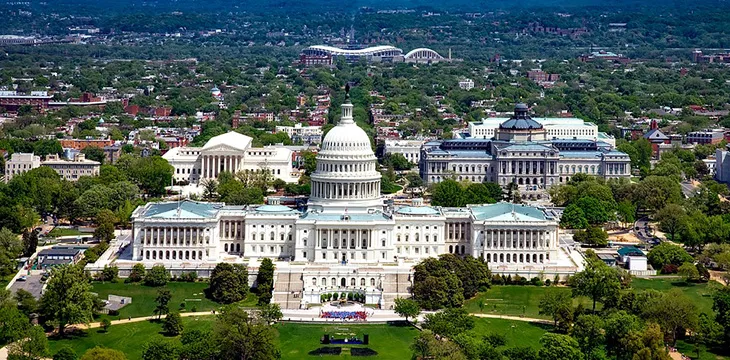|
Getting your Trinity Audio player ready...
|
An advisory firm located in Washington, DC, the Financial Integrity Network (FIN), believes it’s time for the U.S. Congress to step up to the plate and regulate cryptocurrencies. While the ability to implement all-encompassing rules is exacerbated by lawmakers’ inability to agree on what crypto really is, as well as their refusal to accept the reality of digital currency, FIN is pushing a solution that would be easy to introduce and which wouldn’t require an entirely new regulatory framework specific to crypto. The group wants Congress to regulate crypto firms using the existing Bank Secrecy Act (BSA).
FIN is going to appear in a Senate hearing on a larger subject of finance and how it relates to human trafficking today. In anticipation of the hearing, the group published testimony (in pdf) that suggests virtual asset service providers (VASPs) need to be regulated based on the type of service they offer in an effort to promote system-wide oversight. FIN’s VP for product development and services, David Murray, explains, “Congress should create a new class of financial institution under the BSA to cover firms involved in convertible virtual currency transactions: virtual asset service providers (VASPs), which are firms involved in convertible virtual currency transactions. VASPs should include cryptocurrency service providers that are already covered by the BSA as well as virtual asset services that currently fall outside the scope of the BSA.”
Murray adds that the implementation of BSA guidance on the crypto space could negatively impact certain blockchain-based operations, but this is not necessarily a bad thing. The only entities that would be impacted are those that aren’t willing to play by the rules, anyway. Crypto is meant to be used as cash and, as such, crypto-based entities should be naturally willing to follow the same guidelines applied to fiat-based operations and activity. However, just like in the fiat world, there will always be bad players who will game the system for their own benefit, regardless of how it impacts others.
The executive further offers, “The payments landscape has changed considerably during the past two decades, starting with the founding of PayPal in December 1998.72 As Bank of England Governor Mark Carney recently said, “Retail transactions are taking place increasingly online rather than on the high street, and through electronic payments over cash. And the relatively high costs of domestic and cross border electronic payments are encouraging innovation, with new entrants applying.”
As pointed out, the payments landscape is definitely changing and it isn’t going to stop, whether or not the U.S. implements regulations or not. It would be beneficial to the government, consumers and the global community to embrace the future and allow it to flourish as crypto was originally intended, forcing out those individuals and companies intent on scamming the public – the same way regulators have already done with the fiat space.

 07-12-2025
07-12-2025 





